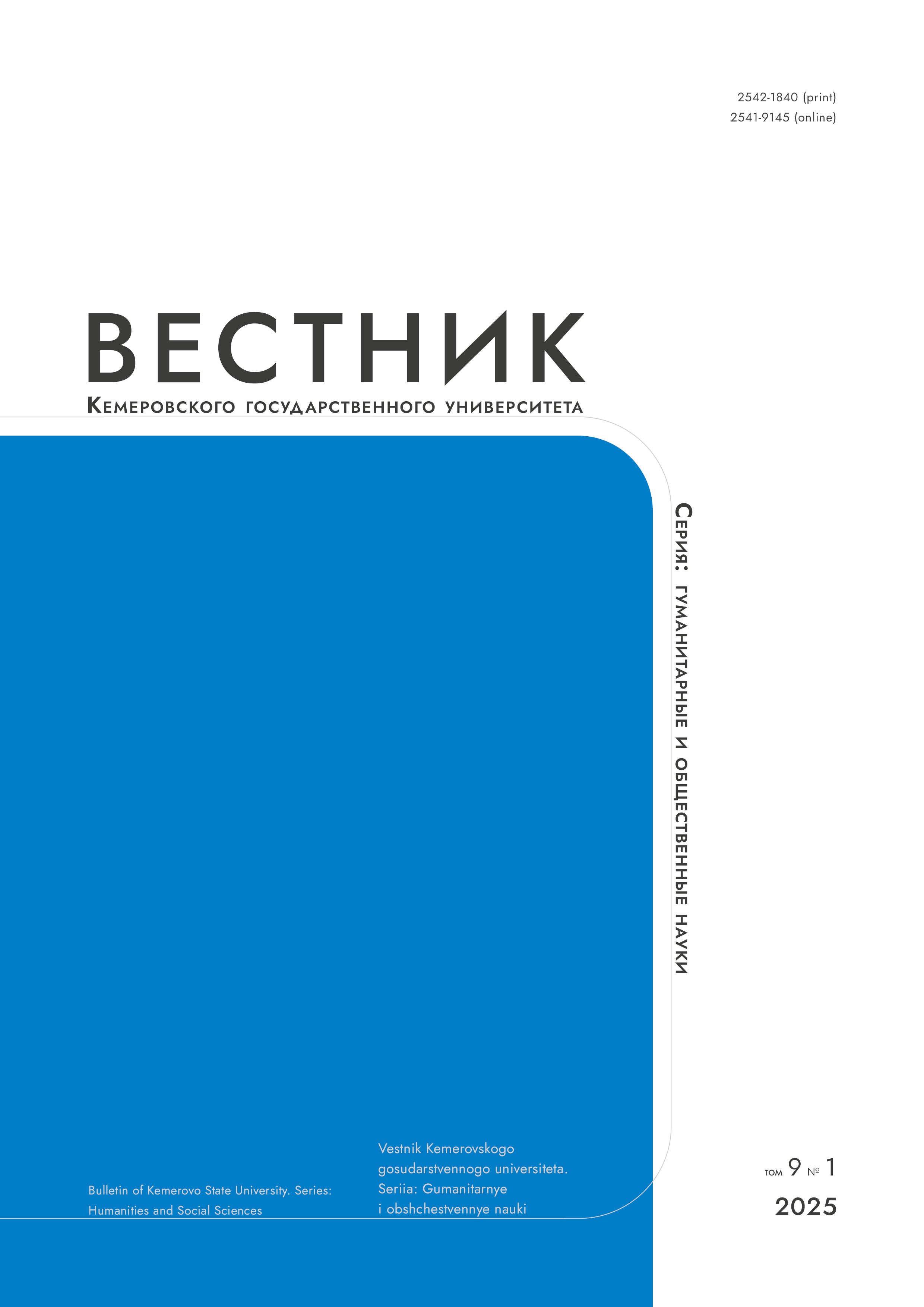from 01.01.2021 until now
Novosibirsk State Technical University (kafedra inostrannyh yazykov gumanitarnogo fakul'teta, docent)
employee from 01.01.2025 until now
Novosibirsk, Novosibirsk, Russian Federation
Functional literacy is an important skill that can be developed in a second language classroom at secondary and high school. This article introduces a functional literacy program of advanced training for teachers of foreign languages. The author used axiological, personal-activity, and interdisciplinary approaches with non-participant observation methods and pedagogical modeling to analyze legal norms, school standards, and foreign and domestic publications. The program offers a single school-university track represented as a course of professional training for teachers of foreign languages at the Siberian Institute of Management, Novosibirsk. Teachers of foreign languages donated their teaching and learning experience in preparing students for state exams in foreign languages and functional literacy development. The study revealed some gaps in the academic standardization, advanced training for teachers, and methodological support for Second Language at school. The author identified vectors of prospective development in the field of functional literacy as school, as well as the reasons behind the passive attitude of most school teachers to functional literacy development. Advanced training in this sphere should be compulsory and interdisciplinary. The connection between functional literacy, state exam diagnostics, and teachers’ competences is of exceptional importance in Russian education and requires more continuity.
functional literacy, reading literacy, creative thinking, global competencies, foreign language, pedagogical staff training
1. Jacobson E. (Mis)understanding adult literacy. International encyclopedia of education, eds. Tierney R. J., Rizvi F., Ercikan K. 4th ed. Elsevier, 2023, 456-462. https://doi.org/10.1016/B978-0-12-818630-5.07003-2
2. Tóth I. G. Literacy and illiteracy, history of. International encyclopedia of the social & behavioral sciences, ed. Wright J. D. 2nd ed. Elsevier, 2015, 236-240. https://doi.org/10.1016/B978-0-08-097086-8.62090-1
3. Matsushita K. Taming PISA literacy - global functional literacy and national educational content. Educational research, 2014, 81(2): 150-163. (In Jap.) https://doi.org/10.11555/kyoiku.81.2_150
4. Ilmiani A. M., Miolo M. I., Hunainah H., Maghfurin A. Building literacy in reading foreign language books for Arabic education students. Arabiyat: Jurnal Pendidikan Bahasa Arab dan Kebahasaaraban, 2022, 9(1): 44-55. https://doi.org/10.15408/a.v9i1.20312
5. Ndimurukundo N. Alphabetisation conscientisante comme base d’une education permanente. International review of education, 1994, 40(3-5): 325-332. https://doi.org/10.1007/BF01257786
6. Kozhanova K. T. Competence-based approach in education as the basis for the formation of functional literacy of schoolchildren. Vestnik "Өrleu" - kst, 2014, (4): 139-143 (In Russ.) https://elibrary.ru/xmztrr
7. Kshenovskaya U. L. Developing functional literacy in EFL classroom. Topical Issues of Philology and Methods of Foreign Language Teaching, 2023, 17(2): 198-204. https://www.elibrary.ru/otrdrr
8. Zavershinskaya I. A., Morozov I. A. Functional literacy as a meta-subject: developing and assessing functional literacy. Science. Creativity: Proc. XVI Intern. Sci. Conf. SGOAN, Samara, 17 Dec 2020. Samara: SGOAN, 2020, 36-43. (In Russ.) https://www.elibrary.ru/csodbh
9. Formation of functional literacy of schoolchildren: new didactic solutions, ed Tarkhanova I. Yu. Yaroslavl: YSPU, 2021, 307. (In Russ.)
10. Koval T. V., Kovaleva G. S., Dyukova S. E. "Big ideas" and functional literacy: Experience in developing the "Global competences" module in the program for the formation of functional literacy. Domestic and Foreign Pedagogy, 2022, 1(4): 79-93 (In Russ.) https://doi.org/10.24412/2224-0772-2022-85-79-93
11. Piryazeva E. N. Developing functional literacy by means of contemporary art. Perspektivy nauki i obrazovania, 2021, (1): 191-201. (In Russ.) https://doi.org/10.32744/pse.2021.1.13
12. Khramova L. N., Lobanova O. B., Basalaeva N. V., Firer A. V., Kirgizova E. V. The model of formation of functional literacy of students in the conditions of digital transformation taking into account regional specificity. Journal of Siberian Federal University. Humanities & Social Sciences, 2022, 15(10): 1394-1403. https://10.17516/1997-1370-0773
13. Lysiak D. D. Functional literacy of written speech as a component of functional literacy of primary school students. Pedagogical Discourse in the Modern Scientific Paradigm and Education: Proc. III All-Russ. Conf. Pedagogical discourse. Moscow, 27 Feb - 1 Mar 2023. Moscow: Yazyki Narodov Mira, 2023, 521-525. (In Russ.) https://www.elibrary.ru/kgsgtg
14. Yurtaeva O. A. Functional literacy of the teacher is the basis for the development of the functional literacy of the student. Problemy sovremennogo pedagogicheskogo obrazovaniia, 2021, (72-2): 316-318. (In Russ.) https://www.elibrary.ru/bmbhvg
15. Syakur A., Sugirin S., Margana M. Interconnection of cultural literacy in learning English and its understanding as a foreign language in higher education. International Journal of English Language and Linguistics Research, 2023, 11(2): 1-8. https://doi.org/10.37745/ijellr.13/vol11n218
16. Cai L., Huang C., Tan H. Critical literacy approach to English as a foreign language: from theory to practice. Applied linguistics, 2023. https://doi.org/10.1093/applin/amad018
17. Pakina T. A. Development of functional literacy and formation of the concept of "functional literacy" in Russia. Bulletin of Pedagogical Sciences, 2022, (5): 201-206. (In Russ.) https://www.elibrary.ru/pnglrs
18. Poddubnaya Ya. N. Functionally literate teacher as guarantee of formation secondary school students’ functional literacy. The Humanities and Social sciences, 2023, 97(2): 156-162. (In Russ.) https://www.elibrary.ru/fbgrki
19. Zhuravleva O. N., Fedorov O. D., Alexandrova S. V. Education in the post-truth era: outlines of a didactic concept. Siberian Teacher, 2023, (2): 10-17. (In Russ.) https://www.elibrary.ru/vszuow
20. Balandina M. A. Lexical and grammar interactive simulators as an effective way to prepare students for the GCSE in English. Nauchnye vyskazyvaniia, 2023, (6): 36-38. (In Russ.) https://www.elibrary.ru/wfyvrb
21. Verbitskaya M. V., Makhmuryan K. S., Treshina I. V. Methodological recommendations for teachers based on the analysis of typical mistakes of the participants of the 2021 use in foreign languages. Educational Measurements, 2021, (3): 37-72. (In Russ.) https://www.elibrary.ru/eyaftn
22. Grigoryeva E. N., Abramova A. G., Guryanova T. Yu. Teaching a dialogue at English lessons in school. Yakovlev Chuvash State Pedagogical University Bulletin, 2021, (1): 112-119. (In Russ.) https://doi.org/10.37972/chgpu.2021.110.1.014
23. Karapetyan I. V. Effective methods of preparing students to complete the tasks of the oral part of the Unified State Exam in English. Upravlenie razvitiem obrazovaniia, 2022, (2): 46-49. (In Russ.) https://www.elibrary.ru/rjgglh
24. Kurasovskaya Yu. B. The transformation of the state exam tasks in All-Russia school olympiad in the English language. Educational Measurements, 2021, (1): 71-79. (In Russ.) https://www.elibrary.ru/nxmdgb
25. Smakhtina N. G. Pedagogical aspects of teaching monologue speech within preparation for speaking module of basic state examination in English. Actual Problems of Modern Foreign Language Education, 2021, (14). (In Russ.) https://www.elibrary.ru/yxgsqb


















